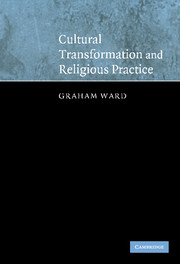Book contents
Introduction
Published online by Cambridge University Press: 15 December 2009
Summary
The origins of this essay lie in the struggle to write the sequel to Cities of God (Routledge, 2001), a book concerned more closely with examining Christian social practice in the context of the contemporary city; a book attempting to rethink Christian social ethics in an age characterised by radical pluralism, strong public narratives, global economic interests, cyber-realities and post-secularism. In order to clarify how Christian practices relate to (or are marginalised by) what is commonly held to be true or possible, I increasingly recognised that it was necessary to provide a model for how cultures change. I needed to have some understanding of how discourses of truth become credible; how such discourses and their accreditation are produced and transform or fail to transform their cultural milieu. The question I am trying to sketch an answer for is: what makes a belief believable?
I recognise this is a question at the heart of several continental projects – Michel de Certeau's, Michel Foucault's and Pierre Bourdieu's, to name a few. I will in part be drawing upon their work for my answer. But it is necessary to recognise in their work, as in the social sciences more generally, that the framework within which their thinking is done is a secular one. In some respects it is a framework not neutral to the discourse of theology, but antithetical.
- Type
- Chapter
- Information
- Cultural Transformation and Religious Practice , pp. 1 - 11Publisher: Cambridge University PressPrint publication year: 2004
- 1
- Cited by

